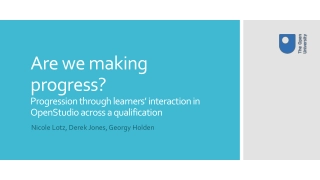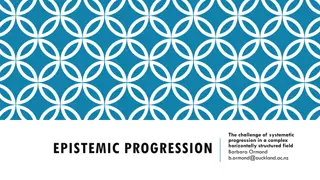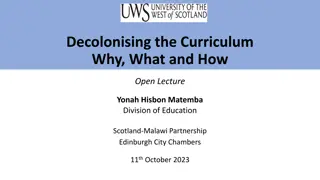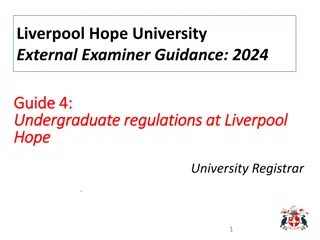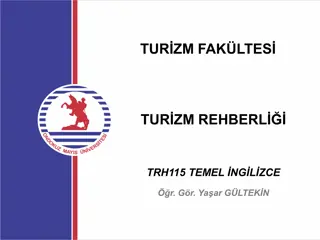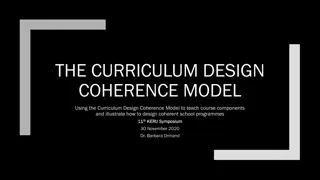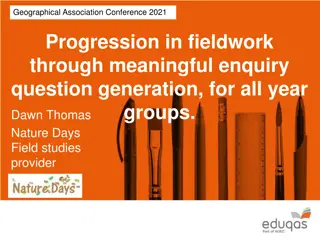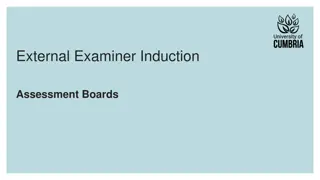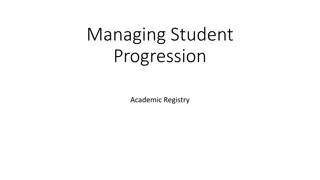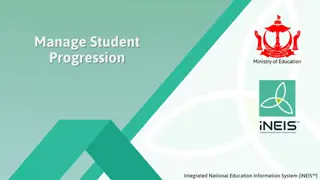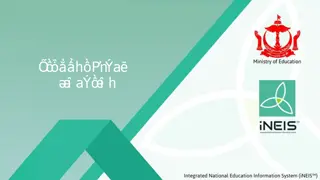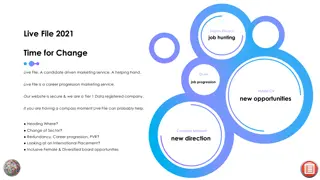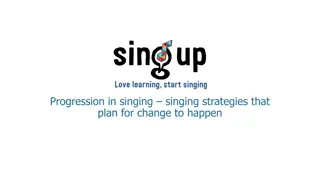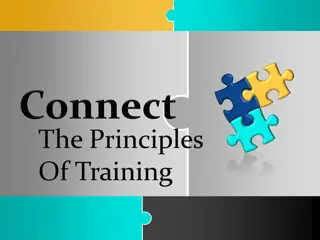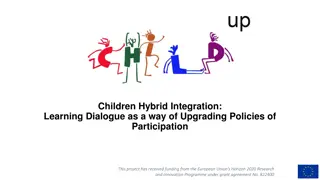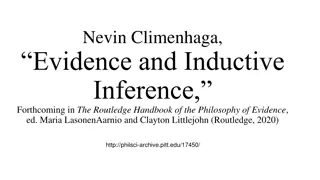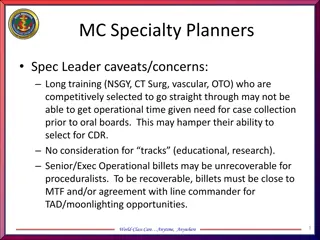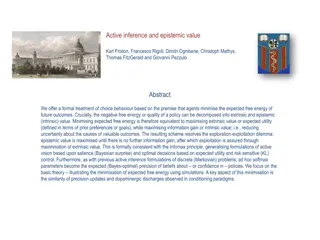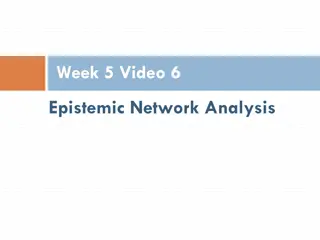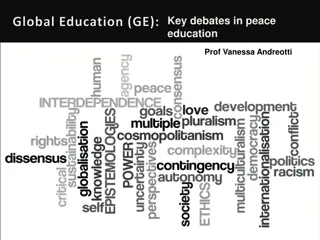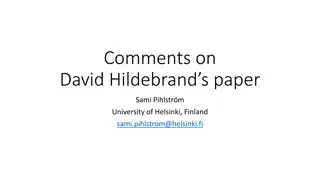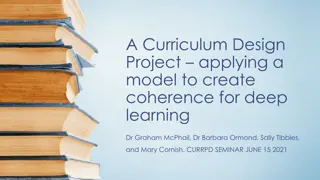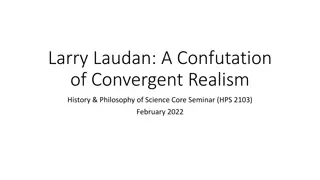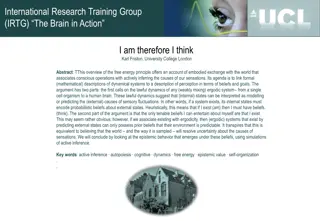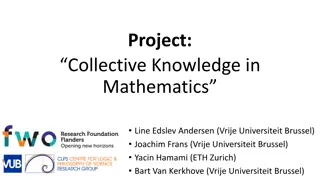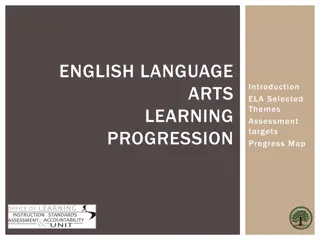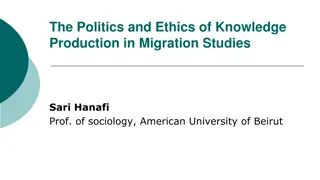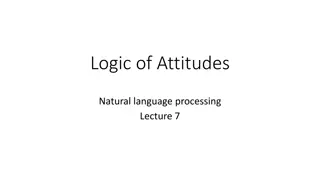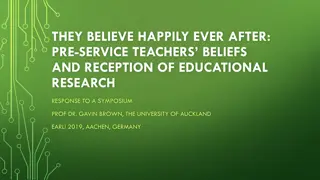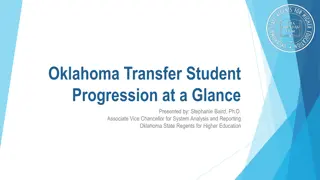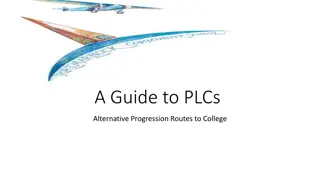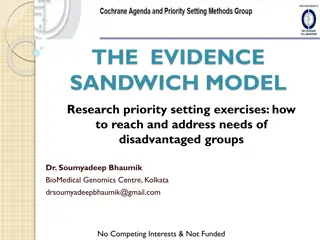Are we making progress?
The progression of learners in OpenStudio across a qualification through interactions and activities. The project aims to understand how engagement, communication, collaboration, knowledge, and learning skills evolve. The agenda includes discussions on traditional studio progression, factors influen
0 views • 24 slides
Enhancing Curriculum Design for Progression in Learning
This conversation aims to explore effective curriculum design approaches that promote learner progression and success while addressing barriers. Insights shared will influence future projects and initiatives, driving meaningful development towards educational objectives. Key considerations include s
1 views • 11 slides
Epistemic Progression in Learning: A Humanities Perspective
Exploring the concept of epistemic progression and its importance in education, this content delves into Basil Bernstein's theories on knowledge structure, trends in history education, and the role of procedural knowledge in fostering progression in disciplines like History.
1 views • 10 slides
Decolonising the Curriculum Why, What and How
Explore the complexities of decolonising the curriculum in Scottish education, addressing epistemic privilege, Black History Month, Scottish history and colonialism, missionary movements, and the nuances of the curriculum itself. Consider the purpose and impact of decolonisation efforts in reshaping
2 views • 24 slides
Religious Education Skills Progression for Years 5 and 6
This document outlines the long-term plan for the RE curriculum for Year 5 and 6 students, focusing on topics such as living by Christian values, exploring wisdom from different faiths, understanding the creation of the world, and expressing faith through art. It also covers the progression of skill
1 views • 31 slides
Liverpool Hope University External Examiner Guidance 2024: Curriculum Structure and Progression Rules
Explore the curriculum structure at Liverpool Hope University for undergraduate programs, including standard and non-standard variations, assessment regulations, and progression rules. External examiners play a crucial role in confirming individual marks, grades, and aggregate scores. Navigate throu
2 views • 23 slides
Weapons Training Strategies and Crew Gunnery Tables Overview
This article provides an in-depth look at the mounted machine gun gunnery gates and tables, crew gunnery progression, weapons training strategy, training gates, and crew gunnery tables. It outlines the structured approach to attaining and sustaining direct fire proficiency for various weapon systems
2 views • 16 slides
Modal Verbs: Epistemic and Deontic Uses
Modal verbs, such as can, could, may, must, will, and should, play a crucial role in expressing modality in English. This content discusses the epistemic and deontic uses of modal verbs, illustrating how they convey likelihood, ability, permission, suggestions, obligations, and advice. Explore the n
1 views • 34 slides
Overview of National Development Manager's Achievements in Education Frameworks
National Development Manager Frank Quinn has led successful adaptations and updates in various education frameworks, emphasizing progression and recognition for learners. The frameworks cover a wide range of sectors from accountancy to social services, showcasing repackaging of units for customized
0 views • 17 slides
Enhancing Teaching Through Curriculum Design Coherence Model
Explore the use of the Curriculum Design Coherence Model (CDC) for designing effective lectures and guiding pre-service teachers in creating coherent lesson plans. Learn about epistemic progression, systematic ordering of knowledge, types of knowledge, and Bernsteins's knowledge structures to design
0 views • 26 slides
Enhancing Fieldwork Skills: Progression Through Enquiry Question Generation
Explore the progression in fieldwork skills for all year groups through the generation of meaningful enquiry questions. Dive into the six stages of the enquiry process, adapt questions for specificity and complexity, integrate fieldwork techniques, and ensure optimal use of the entire process for a
0 views • 13 slides
Multiple Sclerosis: Symptoms, Progression, and Treatment Options
Explore the cellular processes, symptoms, disease progression, and treatment options associated with Multiple Sclerosis (MS). Discover how MS, an autoimmune disease, affects the nervous system leading to a range of symptoms. Learn about the clinical progression of MS and how the immune system causes
0 views • 12 slides
Academic Assessment Boards and Examiners Overview
Academic assessment boards such as the University Progression & Award Board and Module Confirmation Board play a crucial role in confirming student outcomes and award decisions. External examiners are involved in evaluating student marks and ensuring adherence to regulations. The Quality Enhancement
1 views • 9 slides
Managing Student Progression in Academic Registry
This content provides detailed information on managing student progression in an academic registry, covering topics such as academic framework, boards of examiners, mark finalization, module verification, referral requirements, personal tutorial assessments, student progression criteria, assessment
0 views • 15 slides
Managing Student Progression Tool for Academic Programs
This tool enables school student registrars to progress students within the same academic program seamlessly. Users need to run the Attendance Statistics Calculation process before advancing students. The tool allows verifying student progress, manually editing wrong progression, and retaining stude
0 views • 46 slides
Efficient Student Track Allocation Process
The Student Track Allocation process enables users to streamline student progression by uploading a specific file acquired from Query Viewer User Role. This process is designed for Secondary and Sports School career students, allowing for the management and verification of student programs and plans
3 views • 58 slides
Empower Your Career Progression with Live File's Candidate-Driven Marketing Service
Unlock new career opportunities and overcome challenges with Live File, a premier career progression marketing service. Offering a helping hand to navigate job changes, this service targets decision-makers globally, providing access to unadvertised opportunities and facilitating introductions. Wheth
1 views • 16 slides
Predictive Performance of CSF A1-42 and Tau on Cognitive Decline and Dementia Progression
Analysis conducted at the Perelman School of Medicine, University of Pennsylvania, evaluated the predictive performance of cerebrospinal fluid markers A1-42, t-tau, and p-tau181 on cognitive decline and progression to dementia. The study included 2401 ADNI1/GO/2 CSF samples from individuals across d
0 views • 19 slides
WFH-B2O Strategy Deployment Progression
This report outlines the planning and execution of a Work From Home (WFH) to Back to Office (B2O) strategy, focusing on system deployment, asset tracking, and connectivity solutions. It details the successful opportunities, progression distribution, and achievements within a four-week period, emphas
0 views • 15 slides
Progression in Singing: Strategies for Change and Growth
Explore the progression in singing strategies focusing on making impactful changes over time. Discover how singing schools support vocal and musical development, and the barriers to overcome such as insufficient time and funding. Review how singing strategies can be implemented at national and local
1 views • 10 slides
Principles of Training: Overload, Specificity, and Progression
Principles of training encompass overload, specificity, and progression. Overload requires doing more than usual, specificity involves tailored activities, and progression ensures gradual advancement. These principles are vital for improving fitness levels safely and effectively, emphasizing the nee
8 views • 17 slides
Enhancing Children's Hybrid Integration Through Dialogue in Education
Presenting research results on enhancing children's agency and hybrid integration through dialogic interactions in school settings, specifically focusing on children with migrant backgrounds. The project aims to propose effective facilitation methods to support the participation of children with mig
0 views • 28 slides
Inductive Inferences and Their Relation to Probability
Nevin Climenhaga delves into the world of inductive inferences, categorizing them into downward, upward, and sideways forms. He discusses connections with probability, confirmation, epistemic defeat, and more, emphasizing the distinction between direct and indirect forms of inferences.
0 views • 15 slides
Navy MC Career Progression in Operational Medicine
This detailed presentation outlines the career pathways and operational opportunities for Navy Medical Corps specialists, emphasizing the need for a balance between clinical excellence and operational leadership. It discusses the various operational billets available at different career stages, the
0 views • 25 slides
Active Inference and Epistemic Value
This study presents a formal framework for decision-making, suggesting that agents minimize expected free energy of future outcomes by balancing extrinsic and epistemic values. By maximizing information gain and reducing uncertainty, agents navigate the exploration-exploitation dilemma. The strategy
0 views • 18 slides
Epistemic Network Analysis in Data Studies
Epistemic Network Analysis (ENA) is a method for studying relationships between elements in coded data with various applications. It involves analyzing nodes as occurrences of codes and links as co-occurrences of codes. Using examples like analyzing quitting behavior in a game, ENA can compare group
0 views • 30 slides
Key Debates in Peace Education by Prof. Vanessa Andreotti
Dive into the intricacies of peace education through the lens of Prof. Vanessa Andreotti, examining the Magolda Model of Epistemic Development. Explore themes such as violence vs. non-violence, complexity of human beings, empathy, critical thinking, and promoting heroic imagination towards cultivati
0 views • 12 slides
Reflections on Values and Identity in Research by David Hildebrand: A Critical Analysis
Delve into thought-provoking questions raised by Sami Pihlström on David Hildebrand's paper, exploring themes such as the impact of changing fundamental values on personal identity, the concept of reflective equilibrium in research methodologies, the significance of core values, the interplay betwe
0 views • 8 slides
Enhancing Curriculum Coherence for Deep Learning: A Model-driven Approach
Addressing the disconnect between conceptual knowledge and applied competencies in education, the Curriculum Design Coherence Model offers a structured framework to create coherence for deep learning. Developed in response to educational challenges such as skills versus knowledge imbalance and fragm
1 views • 28 slides
Academic Progression Guidelines for Undergraduate Students
Ensure academic progression by achieving a weighted aggregate of 40%+ at each level of study. Requirements differ for Single Honours and Combined Honours students, with conditions related to non-submission, misconduct, grades, and PSRB requirements. Consider options for changing programs if needed.
0 views • 6 slides
Critique of Convergent Realism by Larry Laudan
Larry Laudan's "A Confutation of Convergent Realism" challenges the notion of epistemic realism by arguing that historical evidence does not fully support it. He discusses Convergent Epistemological Realism (CER) and presents abductive arguments questioning the truth and empirical success of scienti
0 views • 18 slides
The Free Energy Principle and Active Inference in Cognitive Dynamics
This overview of the free energy principle by Karl Friston delves into how conscious operations are linked to inferring causes of sensations, emphasizing the necessity of probabilistic beliefs about external states. The discussion includes topics like embodied exchange with the world, ergodic system
0 views • 32 slides
Intersection of Social Epistemology and Mathematics
Delve into the intertwining realms of social epistemology and mathematics, examining the collaborative knowledge creation within the mathematical community. This work emphasizes the social dimensions influencing mathematical practices and the epistemic norms shaping reliable mathematical knowledge.
0 views • 15 slides
English Language Learning Progression Assessment and Standards Overview
Explore the English Language Arts (ELA) learning progression, assessment targets, and selected themes. Understand how to read ELA standards, focusing on vocabulary acquisition and interpretation of words and phrases. Dive into grade-specific standards and themes such as reading comprehension and wor
0 views • 11 slides
The Politics and Ethics of Knowledge Production in Migration Studies by Sari Hanafi
This insightful study delves into the politics and ethics surrounding knowledge production in migration studies. It explores the normativity of migration studies, identity politics, and universalism, while emphasizing the importance of ethics and epistemic community. The discourse also touches upon
0 views • 16 slides
Propositional and Notional Attitudes in Logic and Natural Language Processing
Explore the intricate concepts of propositional and notional attitudes in the context of logic and natural language processing. Dive into the distinctions between belief, knowledge, seeking, finding, solving, wishing, and wanting within the realms of individual intensions and hyper-intensions. Under
0 views • 16 slides
Pre-Service Teachers' Beliefs and Reception of Educational Research
Exploring the awareness and trust of pre-service teachers in educational psychology misconceptions, epistemic trust in educational scientists, questioning prior beliefs when faced with evidence, and beliefs about the instrumental quality of information sources for teaching. The symposium delves into
0 views • 10 slides
Oklahoma Transfer Student Progression Analysis
Explore the transfer student progression data in Oklahoma presented by Stephanie Baird, Ph.D., analyzing the statewide transfer trends, progression outcomes, and transfer pathways between two-year and four-year institutions. Gain insights into where students are transferring within the state's highe
0 views • 25 slides
A Guide to Post Leaving Certificate (PLC) Courses and Progression Routes
Post Leaving Certificate (PLC) courses provide specialized, job-focused training with links to industry and progression to universities. Learn why to apply for PLCs, how they act as a stepping stone to higher education, and how to find courses with QQI links for progression. Ensure accuracy by verif
0 views • 11 slides
Evidence Sandwich Model: Addressing Needs of Disadvantaged Groups
In a world of medical advancements, reaching those in resource-poor settings remains a challenge. The Evidence Sandwich Model explores ways to prioritize research, collaborate, and tackle implementation bottlenecks to deliver basic care to disadvantaged populations. Led by Dr. Soumyadeep Bhaumik, th
0 views • 18 slides
